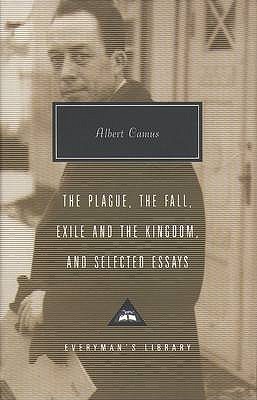
The Fall
Book Description
A man’s confession unfolds in a shadowy Amsterdam bar, where every word cuts deeper than the last. Jean-Baptiste Clamence reveals a twisted tale of guilt, privilege, and moral decay, entangling listeners in a labyrinth of his troubled psyche. As he grapples with his past and the fragility of human connections, each revelation raises the stakes higher, leading to a haunting confrontation with self-love and hypocrisy. The line between truth and facade blurs, leaving one question echoing in the silence: Can a shattered soul ever truly find redemption, or is it forever lost in the depths of despair?
Quick Book Summary
"The Fall" by Albert Camus is a provocative, introspective narrative delivered by Jean-Baptiste Clamence, a former Parisian lawyer, who recounts his moral and psychological unraveling during a series of confessions in an Amsterdam bar. As Clamence grapples with his complicity, pride, and hypocrisy, he exposes the illusions behind societal virtue and self-righteousness. Through a fragmented, deeply personal monologue, Clamence confronts the existential crisis of guilt, acknowledging the universal human tendency toward judgment and self-deception. His tale is as much an indictment of himself as it is a mirror held up to humanity, questioning the possibility of redemption and the limits of truth. Ultimately, Camus crafts a haunting meditation on morality, isolation, and the ambiguities of modern existence.
Summary of Key Ideas
Table of Contents
Guilt and Personal Responsibility
Jean-Baptiste Clamence, once a respected Parisian lawyer, narrates his story to an unnamed listener in the dim confines of a bar in Amsterdam's red light district. The novel unfolds entirely as his confession, revealing the gradual disintegration of his self-image. Clamence describes a series of incidents—most notably, his failure to save a woman who threw herself into the Seine—that force him to confront his own guilt and cowardice. This recognition begins to chip away at his sense of virtue, prompting a relentless self-examination.
Hypocrisy and Self-Deception
Central to Clamence’s confession is the theme of hypocrisy. Despite his outwardly righteous life, he realizes that his generosity, kindness, and legal advocacy were motivated by vanity and a desire for admiration rather than pure altruism. This insight transforms him from a man confident in his moral standing into one who sees duplicity at the root of all human interactions. Clamence's admissions reveal how easily noble intentions can mask self-interest, underscoring the difficulty of ever truly knowing one's motives.
Judgment and the Human Condition
As Clamence continues recounting his past, he broadens his scrutiny to encompass all of humanity. He argues that everyone serves secretly as a "judge-penitent," passing judgment on others while denying their own faults. This role becomes his new identity; he provocatively encourages others to face their own guilt and moral failures, suggesting that judgment is both a burden and a necessity for human existence. Camus uses this device to probe the existential question of authentic living versus the performance of virtue.
Redemption and Despair
The specter of redemption haunts Clamence’s confession. Despite his awareness of his flaws, Clamence remains uncertain whether true redemption or self-forgiveness is attainable. He oscillates between despair over his inescapable guilt and a cynical embrace of his depravity. The narrative's tone is steeped in irony and ambiguity, refusing readers any easy moral answers. Clamence’s inability to reconcile with his past reflects a broader existential struggle with meaning and atonement in a fallen world.
Isolation and Alienation
Throughout the novel, isolation and alienation persist as underlying themes. The setting of Amsterdam—its canals and fog symbolizing moral ambiguity—mirrors Clamence’s own spiritual exile. Cut off from genuine connection, Clamence uses confession as a desperate attempt at self-understanding and engagement with others. Yet, even as he implores his listener to share in his guilt, Clamence cannot escape his profound solitude. Camus leaves us contemplating whether authentic communication and redemption are ever truly possible, or if each soul is condemned to fall alone.
Download This Summary
Get a free PDF of this summary instantly — no email required.





